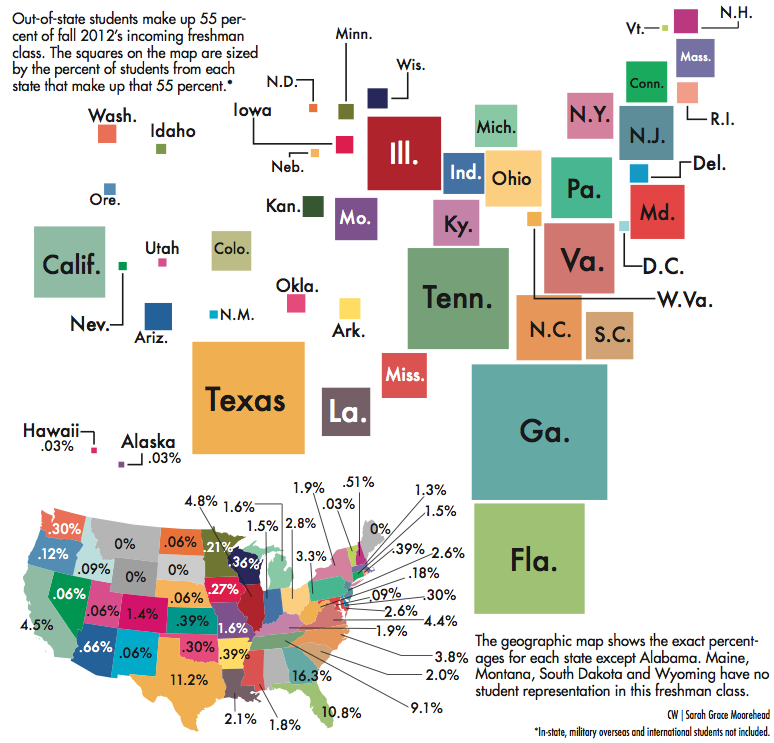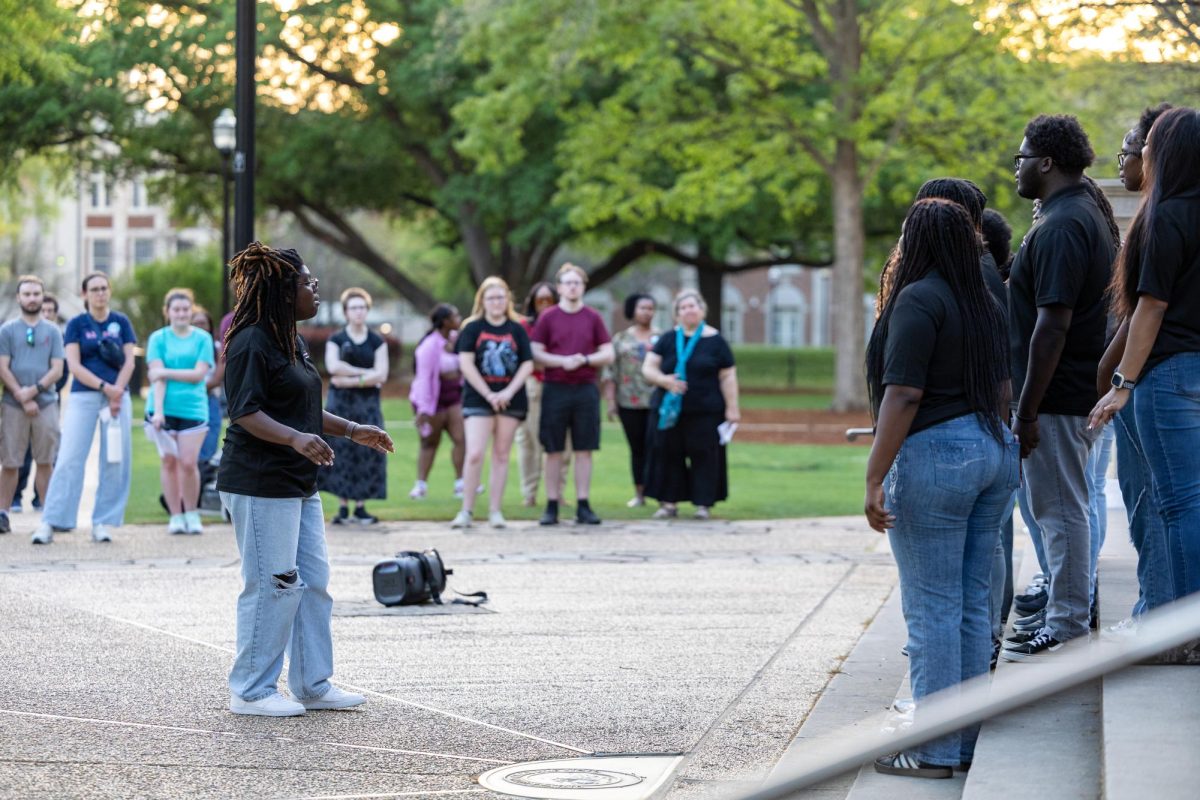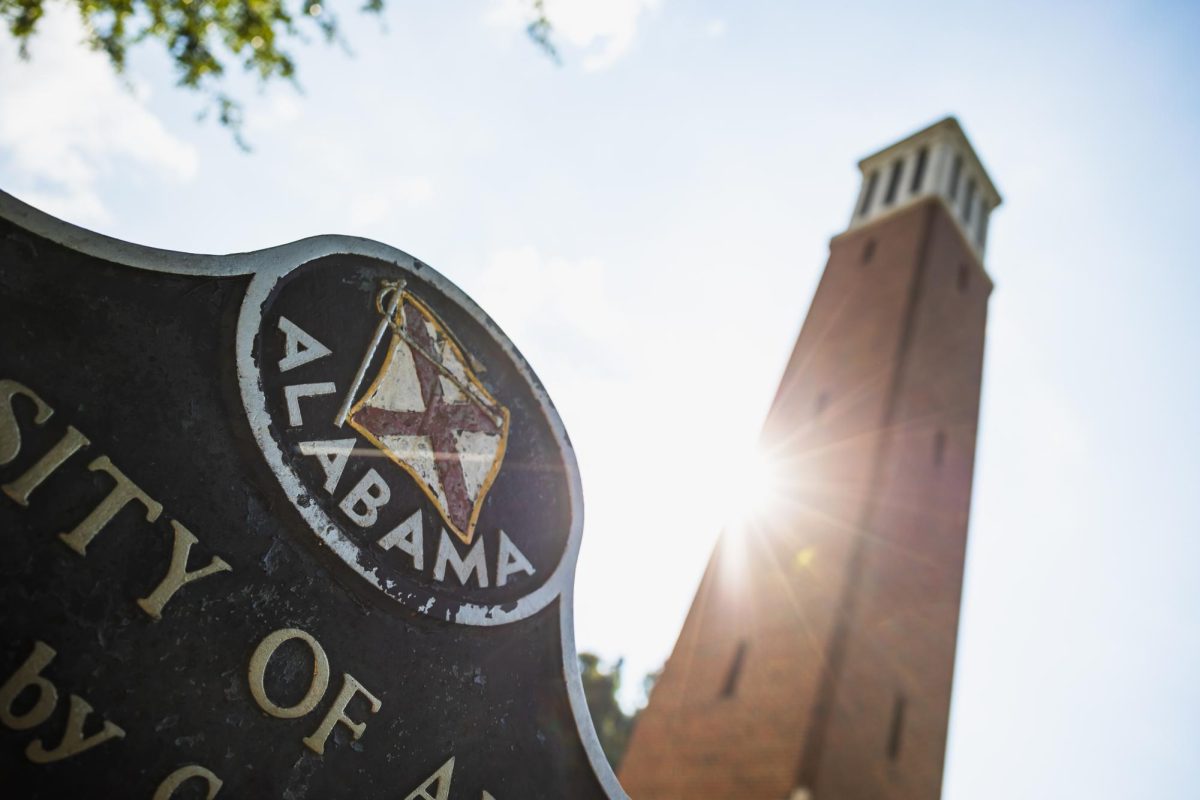As the total enrollment of the University of Alabama has grown substantially in the last decade, so too has the number of out-of-state students. They make up 55 percent of this year’s record-setting freshman class, a four percent jump since 2011, according to a University official.
The class, composed of a record of 6,397 students, was selected from an applicant pool of more than 26,400 — 17,799 of which were from outside of the state of Alabama, said Mary Spiegel, executive director of undergraduate admissions. Georgia, Texas and Florida topped the list of states of origin of freshman students, with Tennessee, Illinois, California, Virginia, North Carolina, Pennsylvania and Ohio behind.
“This is a truly outstanding freshman class,” said Judy Bonner, UA executive vice president and provost, in a press release regarding the enrollment numbers. “As our applicant pool has grown, we have become increasingly more selective. These students have exceptional academic credentials.”
The number of National Merit Scholars in the freshman class has risen 32 percent since 2011 to 239 students, 191 of which are from out-of-state, Spiegel said. Additionally, the number of National Achievement finalists has increased by 12 since last year to 42, 10 of which are from out-of-state.
Spiegel said the University hosts numerous college fairs and high school visits through the fall and spring to recruit both in-state and out-of-state students to apply and attend.
“The University has expanded our recruiting efforts both in-state and out-of-state,” Spiegel said. “Increasing enrollment by recruiting academically talented students from Alabama and across the country has been a top priority to achieve academic growth and achievement. It is important for the University to have students from out-of-state because they help to create a diverse student body and enrich the college experience.”
The University has several regional coordinators throughout the country. However, the state of Alabama alone has a regional recruiter manager, five regional recruiters and four counselors.
Brian McWilliams, a freshman majoring in biology and University Fellow from Pittsburgh, Penn., said his recruiter helped him begin his application process but his decision to attend the University was based on the programs they offered.
“The easy one-page application was what initially caused me to apply, and I chose to come to the University for several reasons,” McWilliams said. “The honors programs, such as Honors College, University Fellows, the Computer-based Honors Program and the STEM to MBA program were the primary reasons, as I was looking for an institution that would give me such enrichment opportunities beyond the classroom curriculum.”
The freshman Honors College class is made up of 59 percent out-of-state students, said Allison Verhine, Honors College admissions coordinator. Additionally, 49 percent of the Honors College as a whole is composed of students outside the state.
Callie Perkins, a freshman University Fellow from Sierra Vista, Ariz., said that since last year was her state’s first year to have a recruiter, she didn’t rely on outside help to make her decision.
“My dad was an alumni so I had grown up going to football games even though we lived all over as a military family,” Perkins said. “When I came to visit fall of my junior year, I was really attracted to the campus and how pretty it is. But when I was accepted into the Fellows program and offered the full tuition scholarship, that kind of solidified my choice.”
The University offers many scholarships for both in-state and out-of-state students. The out-of-state scholarships include the Capstone Scholar, which provides $1,500 per year, the Collegiate Scholar, which provides $3,500 per year, the UA Scholar, which provides two-thirds of tuition for four years and the Presidential Scholar, which gives the full value of out-of-state tuition for four years.
Furthermore, National Merit Scholar and National Achievement finalist scholarship package include the value of tuition for four years, on-campus housing for four years, a $1,000 National Merit stipend for four years, a one-time allowance of $2,000 for use in summer research or international study and an iPad, Spiegel said.
“Lately it seems like there are better scholarships, like full ride or room and board, for out-of-state people now at the major universities in Alabama than there are for in-state students,” said Brandon Hooks, a freshman majoring in international studies and Honors College member from Montgomery, Ala. “That seems like one of the major factors contributing to more out-of-state students than in-state attending now.”
However, Hooks saw a shifting trend among students in the state and from his high school that may have attributed to the low number of in-state applicants.
“When it comes to getting accepted to Alabama, it seems pretty simple, but I know that ACT scores are lower in Alabama than the overall nation,” Hooks said. “Plus, some people just aren’t motivated to pursue college. But I think nowadays people having degrees is more common. Therefore, it’s now the issue of what college someone went to, not if they went at all. A lot of the in-state colleges now are seen as ‘mediocre’ among a lot of people [within the state].”
Nearly 1,725 freshmen had a high school grade point average of 4.0 or above though, and the average ACT score was 25.6.
Regardless of the reasoning, both out-of-state students said they appreciate the overall experience that the University has to offer.
“Coming from Pennsylvania, I really just wanted a new environment and a new challenge, a place that was different than any I had experienced before and one where I could discover my future wholly for myself,” McWilliams said.









